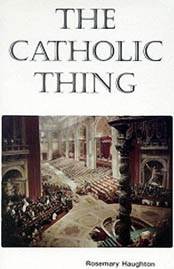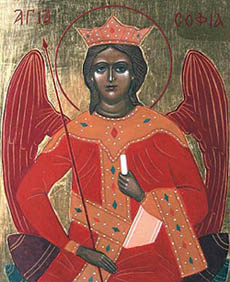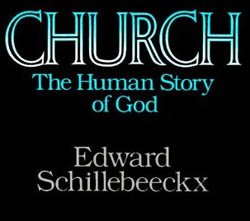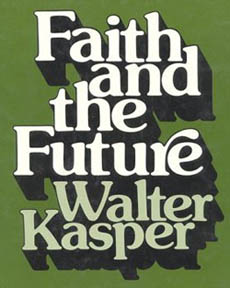
The Church in the World Today
Therese Carroll RSJ
Abstract
Does the Church hinder progress in the
world? The essay argues the Church does not hinder progress but rather, at
times, sits impotently in a world where it is being called to engage in
life-giving, productive and meaningful activities. The world requires of the
Church effective pastoral dialogue on matters of concern and significance in
people’s lives. The world expects a meaningful relationship with the Church
that makes real the experience of God’s love.
Introduction
The Church, as a
social entity, is part of the world and therefore called to engage with the
world. She is called to be critical of herself and to be a witness of God’s
saving love to the world.[1]
If the Church is called to be this reality in our world, then the world rightly
has certain expectations of the Church. The world expects a meaningful
relationship with the Church, a Church that witnesses to God’s love, to witness
signs that the Church critiques herself and changes accordingly, a Church that provides
the world with a means to experience God’s healing love.
Whether the
statement ‘the Church either hinders progress in the world, or at best ignores
the world’ is a valid assessment will be evaluated in the light of these
expectations that the world appropriately has of the Church.
There are two ways
of looking at this statement and assessing its validity. Firstly, the Church in
the form that we know it, is one form only, and is a limiting and incomplete
view of Church.[2]
The picture we have is of an institutional Church that provides structures for
the community of the faithful to experience the love of God. In the Western
world this form of Church is the commonly acceptable notion and concrete
reality, however it is dramatically limited. Second, and a more complete view,
the Church is always developing and being recreated and in reality its true
form is more than the institutional body. It is fluid, changing, and abstract
in form and practice.
The world’s relationship with the Church
 One very provocative
way of picturing these two different forms in relationship as totality of
Church is the image of the twin sisters Mother Church
and Sophia.[3]
Using this image I want to pose the challenge that we generally view the Church
only in the limited first form like Mother Church, without her twin
sister, or vise versa. The Church can, and without a doubt does exist in a more
complete form than we acknowledge. Using the image of the twin sisters, Mother Church
and Sophia[4],
interacting we are challenged to see the totality of Church, the potential
fullness of the Church and its relationship with the world. Rosemary Haughton
in her work The Catholic Thing identifies
the image of the twin sisters as a means of healthy self criticism of which the
Church is capable, being always open to the expression of the mystery in new
and original ways.[5] A
renewed self-awareness is growing in our world so that we now witness other
forms of Church such as sign and
sacrament, herald, servant, liberator.[6]
One very provocative
way of picturing these two different forms in relationship as totality of
Church is the image of the twin sisters Mother Church
and Sophia.[3]
Using this image I want to pose the challenge that we generally view the Church
only in the limited first form like Mother Church, without her twin
sister, or vise versa. The Church can, and without a doubt does exist in a more
complete form than we acknowledge. Using the image of the twin sisters, Mother Church
and Sophia[4],
interacting we are challenged to see the totality of Church, the potential
fullness of the Church and its relationship with the world. Rosemary Haughton
in her work The Catholic Thing identifies
the image of the twin sisters as a means of healthy self criticism of which the
Church is capable, being always open to the expression of the mystery in new
and original ways.[5] A
renewed self-awareness is growing in our world so that we now witness other
forms of Church such as sign and
sacrament, herald, servant, liberator.[6]
The Church witnessing God’s love to the world
Three important Vatican documents, Lumen
Gentium, Gaudium et spes, and the
Decree on the Church’s Missionary Activity (Ad
gentes: AG) speak about the Church’s engagement with the world as “universal sacrament of salvation.”[7]
It is through God’s people and in human relationships that God’s love and
salvation is received. Sullivan in The
Church: One, Holy, Catholic and Apostolic describes the Church as a means
of salvation this way:
Ordinary men and women, and ordinary things like bread
and wine, were going to be signs and instruments of divine grace. And if we
think that all men and women, and all the things that God has specially chosen
as signs and instruments of grace what we have is the Church. That is why we
call the Church the sacrament of salvation; it is the continuation of the
sacramental economy that God instituted with the incarnation of his Son.[8]
It is precisely
here that we can begin evaluating whether the Church hinders or ignores the
world as the actions of the Church witness to God’s liberating love. If the
Church is to be a convincing sign of God’s love, then justice, peace and joy,
will be evident in human relationships.[9]
The areas of authority and inclusion will be used to illustrate the nature of
the Church’s actions.
Authority in the Church
The area of
authority is so significant in evaluating the Church as witness to God’s love
because it is at the heart of all human relationships and how each person
experiences the other, and indeed God’s love in and through the other. The
image of the twins, Mother Church and Sophia,
reminds us that a dialogue of head and heart provides a holistic sense of
Church and the interaction of her members. Authority misused or misplaced leads
to power over, control, oppression, violence, and war.
Jesus brought his
disciples together teaching them about authority as a means of personal and
social liberation. Our Church today has much difficulty in understanding the
kind of authority and freedom that Jesus taught. We have created a Mother Church
so concerned with rules, doctrine, canonical order, institution, and concrete
form. Our history reminds us that we are a Church in and through the grace of
the Holy Spirit, inclusive of the Sophia aspect, the aspect that calls us to
notice matters and movements of our heart.
[10]
 Unfortunately, the
Church today witnesses to the world pagan power and authority rather than the
power and authority that Jesus taught. Donovan in Refounding Church: A Paradigm Shift suggests that “authority in the
Church, as it is understood and practised in the Church, is defective. He
reminds us that Jesus warned his disciples about authority “among the pagans
those in authority make their authority felt, they lord it over those under
them, but with you [he said] it will not be that way.”[11]
The authority that Jesus gifted his disciples with was a power to liberate and
empower those with whom they encountered. Authority that empowers is not the
authority we usually experience in our contemporary Church. Our Church
witnesses that same pagan power that Jesus warned his disciples about. Our
Church is cautious to share authority and power in case the institution as we
know it falls away and allows for new forms to emerge. The authority we know
and experience in the Church disempowers and excludes whilst simultaneously
witnessing a defective kind of authority in the name of Jesus. It leaves us
wondering how women, homosexuals, divorced, oppressors, to name a few, can be
included in the universal sacrament
of salvation when exclusion and marginalization occurs without dialogue.
Unfortunately, the
Church today witnesses to the world pagan power and authority rather than the
power and authority that Jesus taught. Donovan in Refounding Church: A Paradigm Shift suggests that “authority in the
Church, as it is understood and practised in the Church, is defective. He
reminds us that Jesus warned his disciples about authority “among the pagans
those in authority make their authority felt, they lord it over those under
them, but with you [he said] it will not be that way.”[11]
The authority that Jesus gifted his disciples with was a power to liberate and
empower those with whom they encountered. Authority that empowers is not the
authority we usually experience in our contemporary Church. Our Church
witnesses that same pagan power that Jesus warned his disciples about. Our
Church is cautious to share authority and power in case the institution as we
know it falls away and allows for new forms to emerge. The authority we know
and experience in the Church disempowers and excludes whilst simultaneously
witnessing a defective kind of authority in the name of Jesus. It leaves us
wondering how women, homosexuals, divorced, oppressors, to name a few, can be
included in the universal sacrament
of salvation when exclusion and marginalization occurs without dialogue.
The Church – a means for the world to know and receive the healing love of God
Optimistically
though, the image of the twins, Mother Church and Sophia,
emerges here again and reminds us that there is a holistic Church continually
being created. Small communities are experiencing the power and authority that
Jesus spoke of, and lived. Donovan in Refounding
Church: A Paradigm Shift describes this power:
This new form of power, a PARADIGM SHIFT, a
refounding, a place where power would be relational, where it would be mutual,
where it would be a circle of healing for all those involved, where one person
was empowered by the other and the first one did not lose the power; it would
be a mutual empowering.[12]
I know of a number
of small Christian communities, and have been privileged to become a member of
one of these communities, where this kind of power and authority is
experienced. Communities where all members have power, where power is shared,
participation is open to all, where all members have a right to participate and
speak.
These small
communities witness to an image of the circle of healing, empowerment, that Donovan talks about is rooted in
Scripture and the relationships that Jesus risked; risked because the kind of power that he preached called him to
vulnerability and unconditional love (Jn 4:1-30; 8:1-11; 12:1-7; Mt 26;6-13; Mk
14:3-9; Jn 13:1-20; 9:1-12; Lk 13:10-17; 9:1-6; Mt 10:5-15; 7:24-30; Mt
28:16-20.)
Many of the
scripture stories depict Jesus sharing his power, and empowering through
healing those on the margins, or unclean ones. Healing ministries [and
institutions] in our world are places where the world witnesses to the Church
as God’s healing and empowering love (Mk 2:1-12; Mt 12:9-14; Mk 5: 21-43; Mt
15:29-31; Mk 8:22-26).
I think one of the
difficulties we have when evaluating the Church as witness to God’s liberating
love is that we expect that the dominant view of the Church and its members,
particularly those in formal leadership roles, is without human frailty and
limitations. This expectation of Church by the world presumes that those human
beings leading and/or participating in Church have “arrived” at the end of the
spiritual journey to wholeness and holiness. This expectation limits God’s
message of liberation to human beings as pilgrim people. How does this kind
of power that Jesus teaches become part of our relationships and our Church
institutions?
Church critiquing herself and changing accordingly
The Church so
often lacks integrity with the world due to its apparent lack of self-critique
and seeming lack of transformation. The arrogance of Church leaders shines
through in lack of pastoral awareness and dialogue on some of the hard
questions impacting on the daily lives of social beings. Questions and issues
related to increasing feminization of poverty, caring for older people, sexual
preferences and lifestyle choices, reproduction and family, thirst for
spirituality and life’s meaning, abuse, violence, oppression, and war.
 A question and
history that cannot be ignored is the one of sexual abuse by those in
leadership and whether the Church has reflected on its misuse of defective
power. How has the acceptance of responsibility changed the Church? How has the
Church reconciled and liberated those affected? How can the world witness God’s
universal salvation?
A question and
history that cannot be ignored is the one of sexual abuse by those in
leadership and whether the Church has reflected on its misuse of defective
power. How has the acceptance of responsibility changed the Church? How has the
Church reconciled and liberated those affected? How can the world witness God’s
universal salvation?
Yet at the same
time, one of the most hopeful signs of renewal and increasing energy in the
Church is the emergence of spiritual movements and renewal throughout the world
in many varied forms. For many people the workplace provides the nourishment
and opportunity for an experience of Church in the support and development of
their spirituality and sharing of spirituality in community.
The future
Donovan’s Refounding Church – A Paradigm Shift provides a refreshing view[13]
in accepting and urging that much of the past Church can now be “let go” to
allow for a new reality to emerge - when
one door closes another one opens. A paradigm shift is needed if the Church
is to serve the world. Donovan says that perhaps the most significant shift in
our paradigm needs to be that the Church will be transformed from the outside:
The greatest eucharistic ministry will be performed,
not with a lot of people clustered around an altar fighting about who is going
to say the words of consecration or absolution, celibate, single, male or
female. The greatest significance might well be the outside sign. The future of
the Church might lie outside the Sign, outside the Temple. It has always been true that the Word
of truth, the Word of prophecy, is spoken outside the Temple,
not inside the Temple.[14]
Contemporary
political theology provides a means of challenging the Church to be a true sign
of God’s universal salvation.
[15]
It will continue to evaluate the interface and effectiveness of the
relationship between the Church and the world.
Conclusion
 The Church and the
world are indeed inextricably linked, interdependent, organic bodies.
Schillebeeckx in Church: The Human Story
of God describes the inseparable link, the “unbreakable connection” between
Church and the world, the “anamnesis,”
that is, the living recollection among us of the absolute saving presence of
God in our world history.[16]
He says “Churches are the places where salvation from God is thematized or put
into words, confessed explicitly, proclaimed prophetically and celebrated
liturgically.”[17]
The Church and the
world are indeed inextricably linked, interdependent, organic bodies.
Schillebeeckx in Church: The Human Story
of God describes the inseparable link, the “unbreakable connection” between
Church and the world, the “anamnesis,”
that is, the living recollection among us of the absolute saving presence of
God in our world history.[16]
He says “Churches are the places where salvation from God is thematized or put
into words, confessed explicitly, proclaimed prophetically and celebrated
liturgically.”[17]
The world looks to
the Church for example, inspiration, leadership and guidance. Sometimes, very
often in fact, society is disappointed when the Church fails, e.g. abuse of
power, exclusion of women and homosexuals, lack of attention to the poor in our
world.
Witness to the
gospel is evidenced first and foremost by being harmonious in ourselves. The
world looks for this among members of the Church as a starting point to
evaluate the integrity of the Church as actions speak louder than words.
The traditional
institutional Church that the world sees is a Church of rules somewhat devoid
of compassionate relationships, whilst the world needs a modern Church where
the love of God is seen and experienced in dialogue with the rule. The world
declares its disappointment that the Church is offering nothing new. The desire
among people for spirituality is so strong; however the institutional Church is
not offering anything substantial in that sense.
This paper has
revealed that the Church does not hinder progress but rather at times sits
impotently in a world where it is being called to engage in life-giving,
productive and meaningful ways. The Church’s lack of pastoral dialogue on
matters of concern and significance in people’s lives is an inherent weakness.
The common view
and experience of Church is the institutional form of Church, however the form
is, as previously noted dramatically limited and incomplete. From this stance
the Church is often seen to be irrelevant
to a complex world rather than hindering progress; more erring on the side of
ignoring the world really. In contrast, we can become aware of a more complete
view of the Church; the Church as developing and being recreated and in reality
its true form is more than the institutional body; as fluid, changing, and
abstract in form and practice. From this place the Church is developing a
greater self awareness, capacity to self-critique, openness to insights from
the outside world, and always potentially new. From this space the Church has
potential to be a positive influence on the world and vise versa.
 Walter Kasper in Faith and Future seems confident that
the Church of tomorrow will be “simpler and more unpretentious,” and the
witness of a few to the world convincing and confronting, however the future
unknown. He says
Walter Kasper in Faith and Future seems confident that
the Church of tomorrow will be “simpler and more unpretentious,” and the
witness of a few to the world convincing and confronting, however the future
unknown. He says
No one can know whether it will be so or how precisely
it will turn out. There is only one thing we do know from both the Bible and
history: the future of the Church will be determined by the saints, by the holy
men and women who open themselves completely to the working of the spirit. They
are witnesses to the God who is not dead but alive and is continually
reawakening life in the Church in astonishing and unexpected ways.[18]
A final reminder that consciousness will assist a fruitful
relationship between Church and the world I conclude with another challenge to
the Church by Donovan in Refounding
Church: A Paradigm Shift. He takes hold of the Church and shakes it to wake
from its dreaming and ignorance of the grace and beauty of the world:
Our world is a sacred place. It is time now for the
Church to be evangelized by the world. I use those words “evangelized by the
world,” very deliberately. The full meaning of the gospel will come form the
world and ourselves in dialogue with the world.[19]
Bibliography
Donovan, V.,
“Refounding Church: A Paradigm Shift”, Chicago Studies, 31, August 1992.
Kasper, W., Faith and the Future, New
York, Crossroad, 1982.
Metz, J. B., Theology of the World, New York: Seabury, 1969.
Rahner, K., “The
Function of the Church as a Critic of Society” in Theological Investigations, No. 12, New York: Seabury, 1974.
Schillebeeckx, E., Church: The Human Story of God, New York, Crossroad,
Sullivan, F., The Church We Believe In: One, Holy,
Catholic and Apostolic, Dublin:
Gill & Macmillan, 1988.
Thornhill, J., Sign and Promise: A Theology of the Church
for a Changing World, London:
Collins, 1988.
Footnotes
[1] Karl Rahner, “The Function of the Church as a Critic of Society” in Theological Investigations, No. 12, New York, Seabury, 1974,
229.
[2] Vincent Donovan, “Refounding Church: A Paradigm Shift”, Chicago Studies, 31, August 1992, 215.
[3] John Thornhill, Sign and
Promise: A Theology of the Church for a Changing World, London, Collins, 1988, 203.
[4] Thornhill, Sign and Promise:
A Theology of the Church for a Changing World, 203. “The first, ‘Mother Church’
is more familiar, she is preoccupied with matters of the head, canonical order,
doctrinal orthodoxy, time-honoured practical wisdom. Her twin sister, ‘Sophia’,
however, is given to the things of the heart; and this makes ‘Mother Church’
uneasy: ‘You never knew where she would be or what she would be doing.”
[5] Thornhill, Sign and Promise:
A Theology of the Church for a Changing World, 203. “As she puts it,
Catholicism is a project, an enterprise, responding to a heritage that is
bigger than the self-expression which it may find through any particular person
or historical movement. That heritage is the mystery of the Christ-event, ever
expressing itself in new and original ways. The Church knows that we will never
fully express the greatness of the mystery, and that we should never be
surprised when that greatness overwhelms us with a new form of expression.”
[6] Thornhill, Sign and Promise:
A Theology of the Church for a Changing World, 202.
[7] Francis Sullivan, The Church We Believe In: One, Holy,
Catholic and Apostolic, Dublin,
Gill and Macmillan, 1988, 109. “In Lumen
gentium we read: “Christ having been lifted up from the earth, is drawing
all men to himself (Jn 12:32). Rising from the dead, he sent his life-giving
Spirit upon his disciples and through this Spirit has established his body, the
Church, as the universal sacrament of salvation” (LG 48). Gaudium et spes declares: “Whilst helping the world and receiving many benefits from it, the
Church has a single intention: that God’s kingdom may come, and that the
salvation of the whole human race may come to pass. For every benefit which the
People of God during its early pilgrimage can offer to the human family stems
from the fact that the Church is the ‘universal sacrament of salvation,’
simultaneously manifesting and exercising the mystery of God’s love for man (GS
45). Finally, the Decree on the Church’s Missionary Activity (Ad gentes: AG)
opens with the statement: “The Church has been divinely sent to all nations
that she might be the universal sacrament of salvation’” (AG 1).”
[8] Francis Sullivan, The Church We Believe In: One, Holy,
Catholic and Apostolic, 122.
[9] Francis Sullivan, The Church We Believe In: One, Holy,
Catholic and Apostolic, 123. “The Church is a sign of salvation for the
world by being a community that manifests in its very life the things in which
St Paul tells us the kingdom of God consists: “The kingdom of God is not food
and drink, but justice and peace and joy in the Holy Spirit” (Rom 14:17).
[10] Donovan, “Refounding Church: A Paradigm Shift”, 218-19.
[11] Donovan, “Refounding Church: A Paradigm Shift”, 218. He says “I
have been in the Church for many years. I do not know how to say this. I have
never seen authority carried out properly, never!
NOT the authority that Jesus was talking about. What kind of authority was
that? It was not this other kind of authority which I would call “pagan”
authority. That is what HE called it. I might even call it “male” authority.
UNILATERAL. This type of authority is a sole possession of someone, and were
that person to talk about sharing authority, it would mean doling it out….it
would mean a system of powerful people and powerless people.”
[12] Donovan, “Refounding Church: A Paradigm Shift”, 219.
[13] Donovan, “Refounding Church: A Paradigm Shift”, 215. Under the
title “The author suggests a paradigm shift is needed if we are to recast the
Church to serve in today’s world.”
[14] Donovan, “Refounding Church: A Paradigm Shift”, 223.
[15] Johannes Baptist Metz,
Theology of the World, New York, Seabury, 1969,
107. “Political theology is a critical correction of present day theology
inasmuch as this theology shows extreme privatizing tendency. It is a positive
attempt to formulate the eschatological message under the conditions of our
present society.”
[16] Edward Schillebeeckx. Church:
The Human Story of God, New York,
Crossroad, 1983, 13.
[17] Edward Schillebeeckx. Church:
The Human Story of God, 1983, 12.
[18] Walter Kasper, Faith and the
Future, New York,
Crossroad, 1982, 62.
[19] Donovan, “Refounding Church: A Paradigm Shift”, 221.
© Copyright is retained by the author